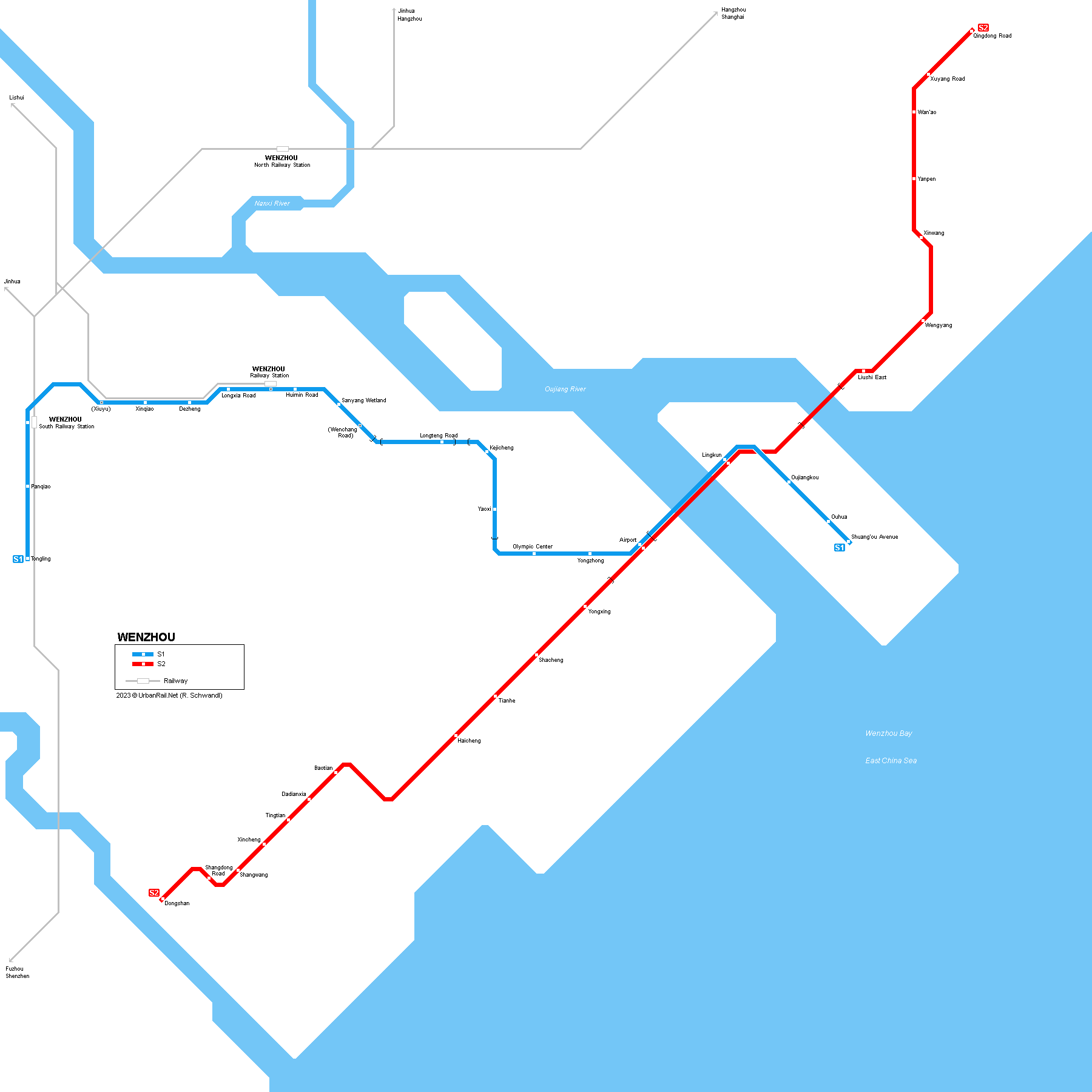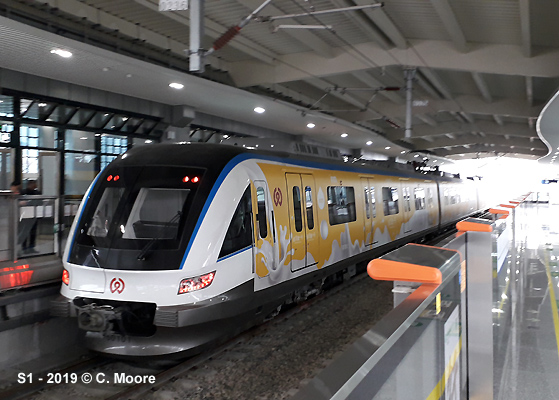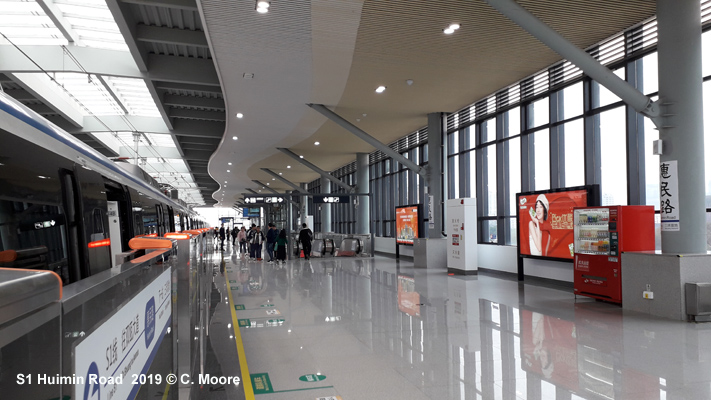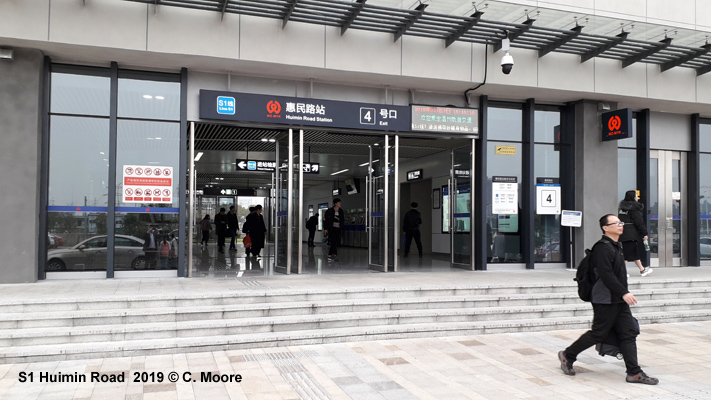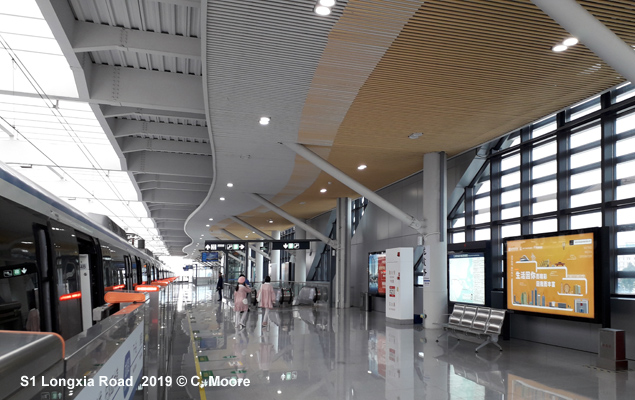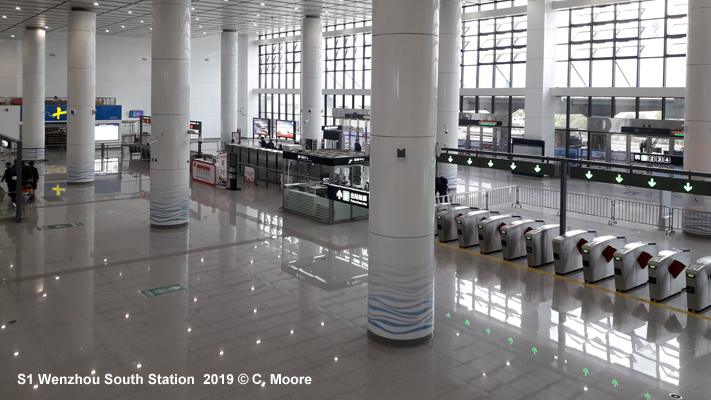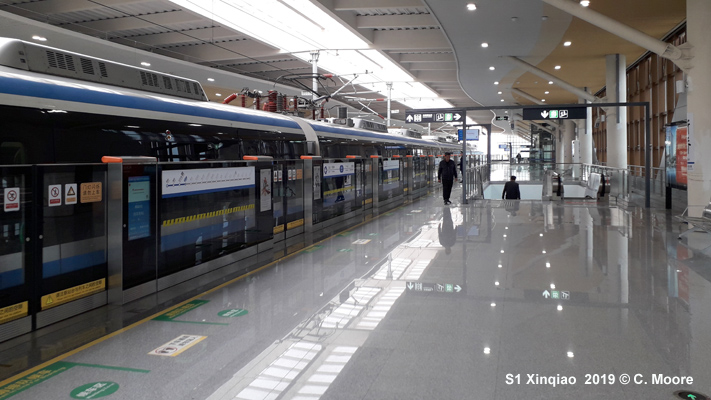|
In March
2019, Craig Moore reports from Wenzhou:
Wenzhou
A medium sized city located on wetlands and punctured by many waterways,
Wenzhou is also surrounded by dramatic mountain scenery. This has historically
created isolation for the city and has resulted in a distinct culture
and language of the local people. Despite this, in Jan 2019, the city
became part of the Chinese Metro establishment, operated as Wenzhou Rail
Transit.
Route
The single line system is 33.6Km (Revenue Km) and hosts 12 stations, using
standard gauge and overhead power supply. The alignment runs mainly on
viaduct. From Tongling in the south west of Wenzhou the route follows
the main rail line north the Nan Zhan (South station). This is the main
station for the city and receives long distance trains from Hangzhou and
Shanghai. Beyond here, the alignment turns east and again runs parallel
to heavy rail lines running to the traditional main station. On this stretch,
Longxia Road (nearest station to the city centre) and Huimin Road (new
commercial/residential/civic area) are the busiest stations on the system.
This section also expands from twin track to three-track viaduct, with
Longxia hosting stabled trains on the middle line. There is noise reduction
tubing in this section and then two short tunnel sections puncture the
line as it then heads south-east to the current terminus of Olympic Centre
which is presently the only underground station on the line. From here,
an extension to the airport and beyond the Oujiang is in construction.
With an average station gap of 2.8km, this is definitely a suburban metro
and the route misses the traditional centre and mainly serves new and
developing areas to the south of the main urban area.
Stations
Stations are modern and smart. They are very visible in the city scape
with stylish station names located high on the building. Entrances are
located at the sides and the ticket area has banks of machines, security
and modern ticket gates. The walls and support pillars offer imagery of
the local area and add a lovely touch to the bright and airy nature of
the buildings. Stairs and escalators lead to the side platforms. These
are built for six car trains but only four car trains operate and stop
at the leading end of the platform. The platforms are deep and backed
by full window exterior walls that provide nice views of the surroundings,
and create a light feel. The support pillars have posters with station
name in Calligraphic figures and English, although these are small and
cant be seen effectively from the train. A smart panel ceiling design
(mustard/crème/white) is then topped by metallic ceiling plates with glass
panels in the centre, again enhancing the bright feel of the surroundings.
There is seating, a schematic map (showing current and future system)
and half screens with line strip. These also have a side LCD panel with
RTI and other information – very impressive (Ningbo also has these). Wayfinding
signage throughout the system is good and there are information leaflets
available on fares (Map not included). Station staff are very helpful
and friendly.
Service
The CRRC Qingdao trains are D stock type and run in 4 car sets. The exterior
is white with black and blue trim. The interior has a mix of side and
paired metallic seating with blue and orange trim. There is an electronic
strip map and the ceilings have interesting triangular lighting shapes.
The trains do not have a schematic map but LCD panels offer information
on next stations and behaviour ‘hints’. There is also audio information
in Mandarin, English and Wenhzouhua (local, distinctive dialect which
is incomprehensible to Mandarin speakers). Trains run quite slowly and
there are long dwell times at stations, exaggerated, no doubt, because
passenger numbers are not huge. Services run from 0630-2030 at 8min headways.
Fares are distance based (2-8 Yuan) and come in the form of a card with
graphical representations of iconic buildings in the city.
Summary
Whilst not an intensive, urban service, this Metro development has been
really well executed. Nice stock and stylish stations, decent service
levels and an interesting alignment. Very enjoyable.
|
